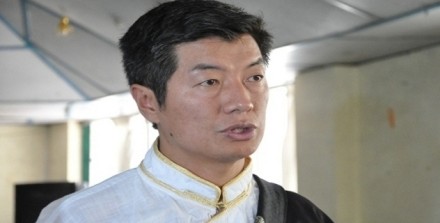DHARAMSHALA: The ninth session of the 15th Tibetan Parliament-in-Exile which is the budget session for the financial year 2015-2016 concluded recently on 28 March.
The Tibetan Parliament approved a total of INR 2,018 million for the budget (Ngon-tsi ma-ngul) of the Central Tibetan Administration and its various departments and offices for the coming financial year.
The budget of the Central Tibetan Administration is formulated by the Department of Finance and submitted to the Tibetan parliament for review and approval. The parliament reviews the proposed budget in the budget session and duly approves it.
“In the financial year 2013-2014, there was a surplus budget (Ngon-tsi ma-ngul) of INR 40.17 million. Similarly, in the last four years, at the end of every financial year, there was a balance budget with some surplus, indicating the sound financial state of the Central Tibetan Administration,” Sikyong Dr. Lobsang Sangay, the democratically elected Tibetan political leader, said.
“In the last six months only, the Central Tibetan Administration has raised around 50 Crores for its rehabilitation and development projects,” he added, thanking all the donors for the financial support extended towards the various Tibetan projects in India and Nepal.
Changes in Tibetan Voluntary Fund (Green Book)
The recently concluded budget session also approved some changes tabled by the Kashag in the contribution rates towards the Tibetan Voluntary fund (Green book).
As per the new changes, a Tibetan between the ages 6-17, residing in a foreign country, can pay only $1 per month as compared to the $3, which was the rate earlier. A total of $24 dollars per annum has been reduced to increase people’s contribution and participation in the Fund.
The present Kashag also endorsed and continued the previous Kashag’s move to exempt Tibetans who have not been able to contribute regularly towards the Green Book due to financial constraints till 2007.
The previous Kashag has announced exempted rates in contribution towards the Tibetan Green book. However, many people were not aware of that, due to which many Tibetans didn’t contribute. Therefore, the exemption was continued to allow them to update their green book dues.
For those who were not able to pay, the lump sum amount liable towards the green book from 2007– 2015 could come to around $ 800.00. So, it’s understandable if individuals or families are not able to pay the full amount. All they need to do now is apply for exemption stating whether they are able to pay $100 or up to $800 depending on their financial condition.
Tibetan Associations should compile all the names with their green book nos and the amount the particular individual is able to pay and apply to the Department of Finance (Paljor office) for exemption. And accordingly, the Standing Committee of the Tibetan Parliament-in-Exile will consider the exemption.
In another landmark move, the budget session also allowed the option to apply for a new green book. A person can now apply for a new green booklet for a change in name as per their residence documents/citizenship issued by the host country (i.e. US, UK, Canada etc.)
Besides these, the Tibetan Parliament also approved the provision of a grant proposed by the Kashag for the various Tibetan Opera associations (Lhamo) to revive and promote the unique Tibetan artistic heritage of opera.
Grants for construction of new as well as renovation of existing playgrounds in Tibetan settlements were also approved by the Tibetan parliament. These grants were allotted to augment the continued sustenance of the Tibetan settlements and for the development of general public health through sports and recreation.

